K. Colin Li (he/him)
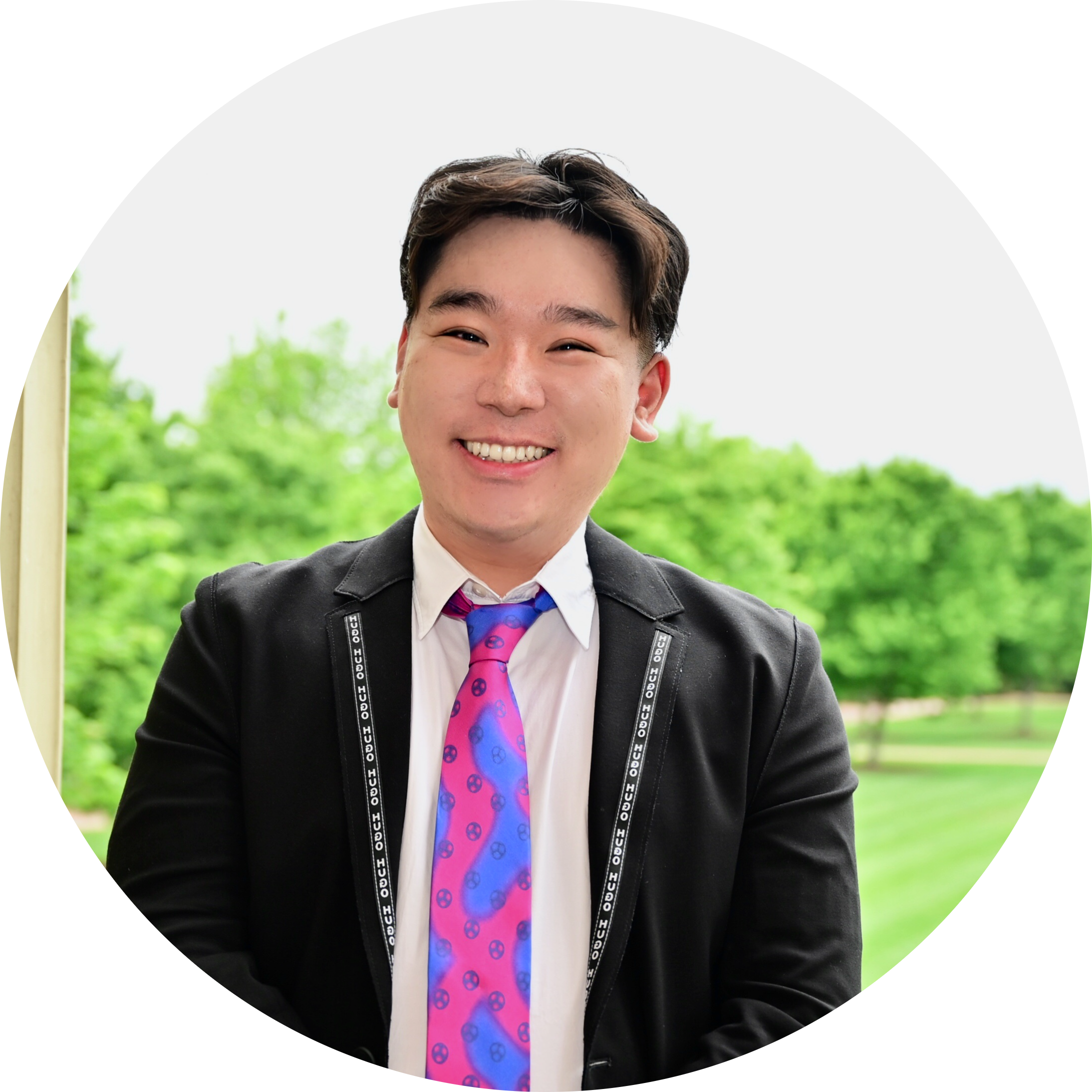
PhD Student | Mixed-Methods Researcher
About me 👋
Hi everyone, my name is Colin 😊 I’m a second-year PhD student in the social and personality psychology program at the University of Toronto 🍁
Research Interests
- Prejudice and Discrimination 😒
- Diversity and Representation 🧑🏿🤝🧑🏻🌎
- LGBTQ+ 🌈
- Mental Well-being 😄
- Measurement 📏
Education
Ph.D. Social-Personality Psychology
University of Toronto May 2027 (Expected)
M.A. General-Experimental Psychology
Wake Forest University May 2023
B.A. Psychology (Honors)
University at Buffalo, SUNY May 2020
Projects in Preparation
What Types of Representation Do Marginalized Group Members Value More?
- We found that when marginalized group members talk about representation, they either refer to someone who shares their identity and/or someone who shares their values
- So we developed a scale to measure identity-based and values-based representation and validated it in a workplace context
- Both types of representation are correlated with well-being and performance outcomes

- Interestingly, people generally see more colleagues and leaders who embody their core values than the ones who share their identity
- However, only those who identify as stigmatized report seeing less identity-based representation, whereas non-stigmatized people see equal levels of identity and values-based representation
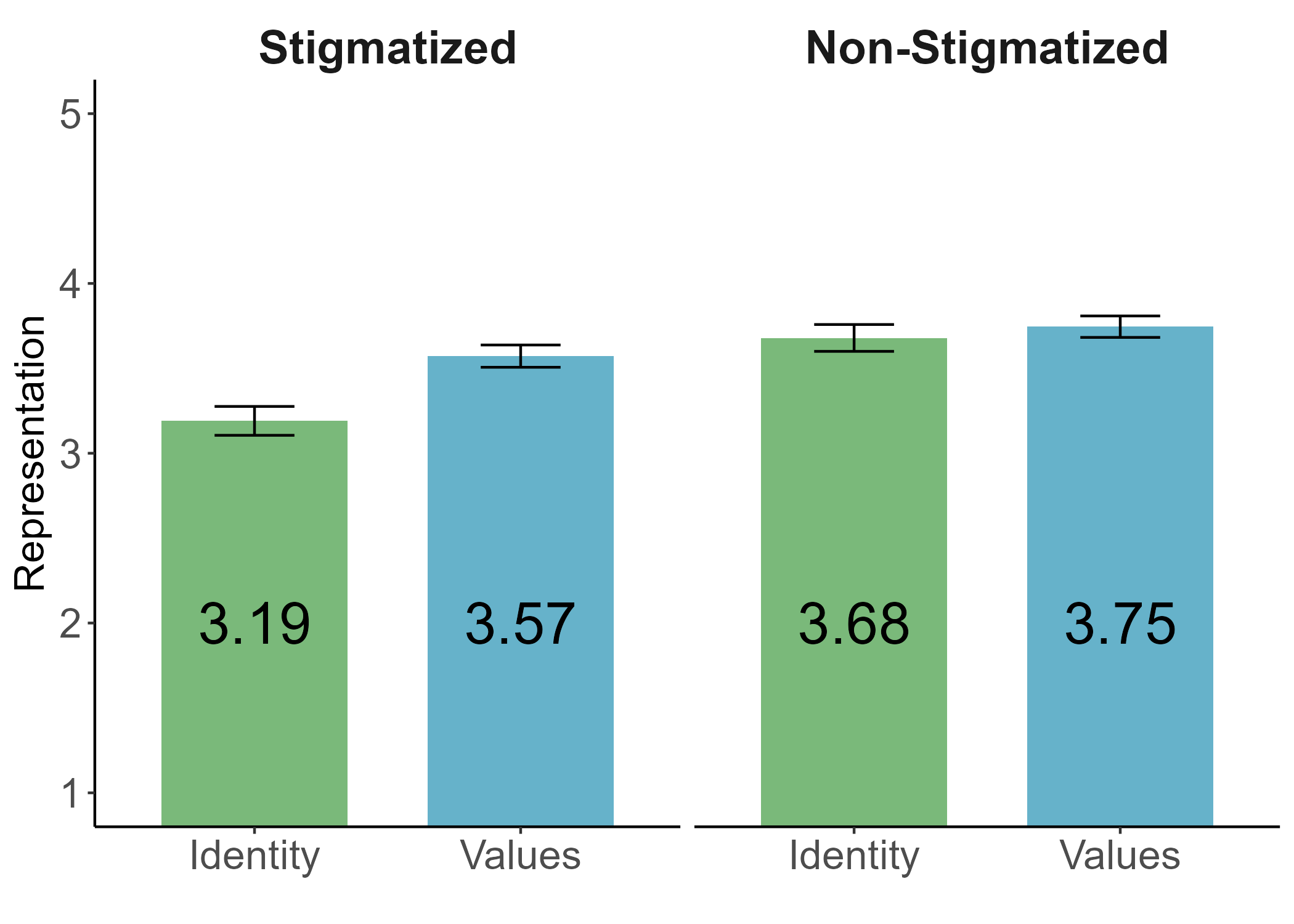
What Psychological Barriers Prevent LGB People from Coming Out?
- We used a national probability longitudinal dataset to explore the relationship between minority stressors (i.e., unique stressors experienced by sexual minorities) and coming out to a straight friend
- Suprisingly, the more everyday discrimination one experienced in the previous year, the more they likely they are going to come out in the next year
- This finding still holds after taking into account other minority stressors, demographics, perceived sexual orientation visibility, and disclosure history
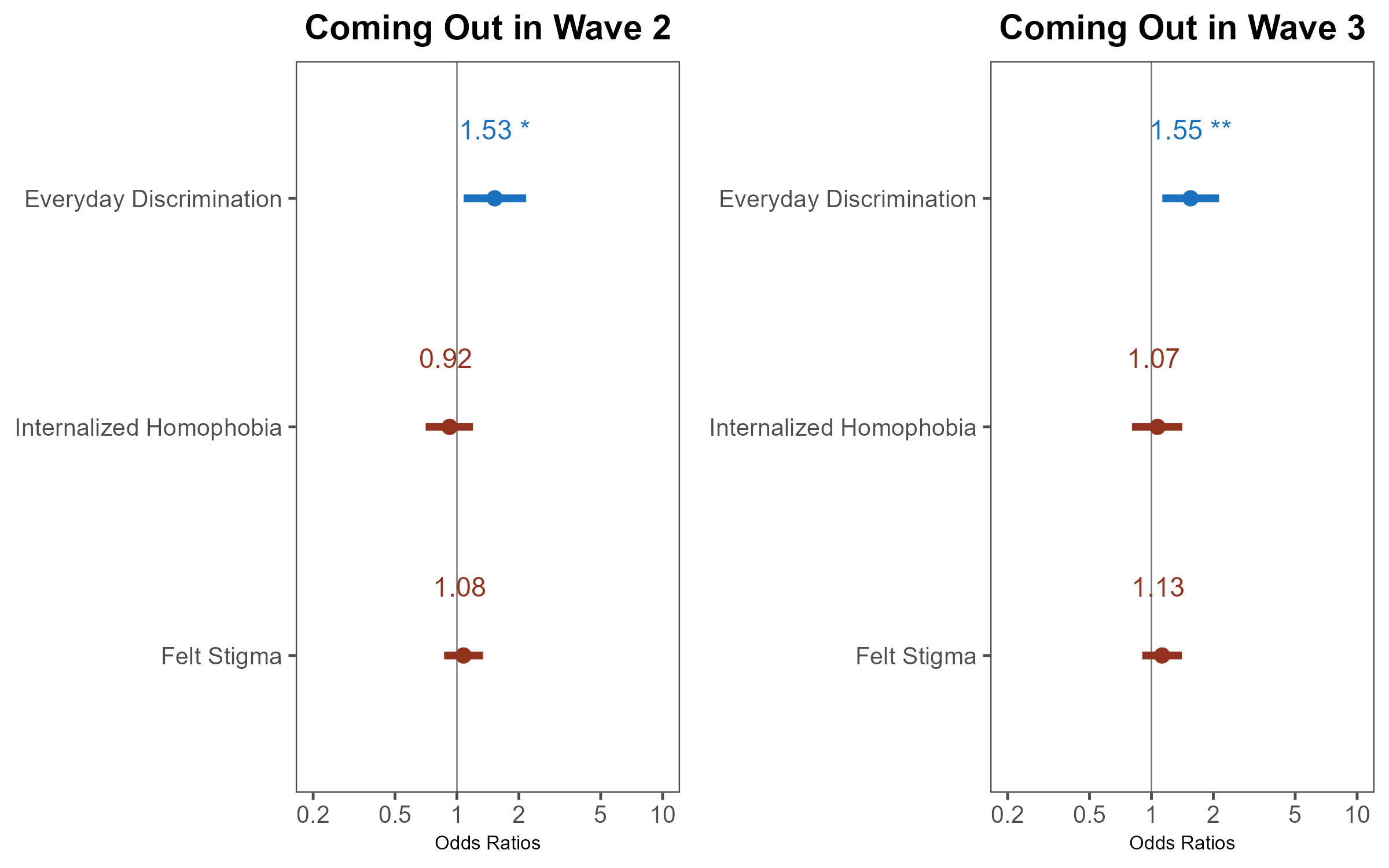
Does Ingroup Prejudice Hurt Asian Americans More?
- We examined how Asian Americans feel after experiencing ingroup prejudice (i.e., prejudice that comes from ingroup members)
- Results showed that Asian Americans who were rejected by Asian peers felt less positive towards Asians compared to their baseline attitudes, whereas experiencing prejudice from White peers did not change participants’ attitudes towards Whites
- Expectation and prejudice attribution are not related to this difference
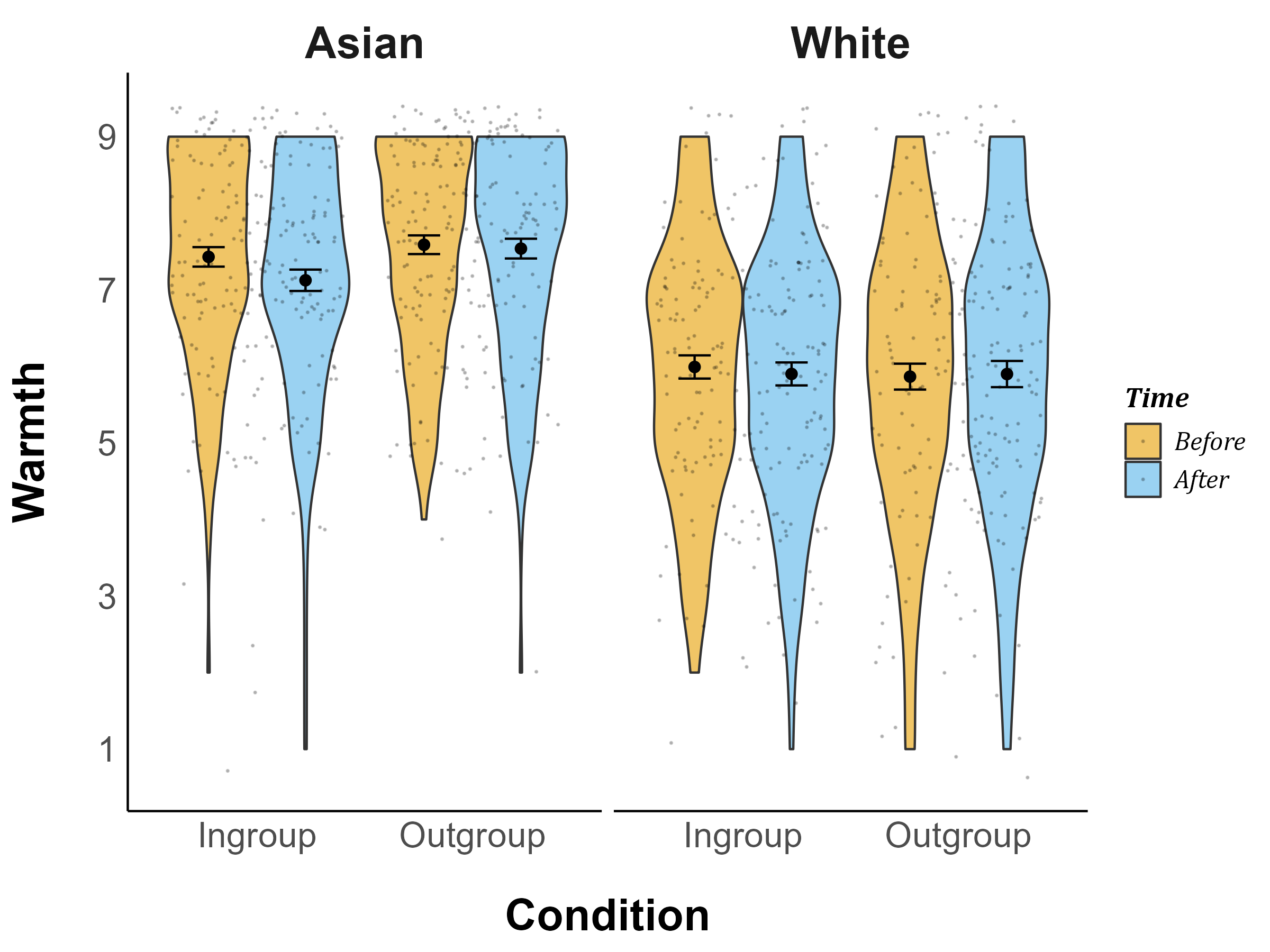
Do People Hold More Prejudice Towards Bisexual Singles?
- We asked people to rate single people with different sexual orientation backgrounds and found that people’s assumptions about bisexual single people are more negative than gay/lesbian single people
- This prejudice primarily comes from non-single people
- The belief that bisexual people have more choices of potential dating partners partially explains the rating
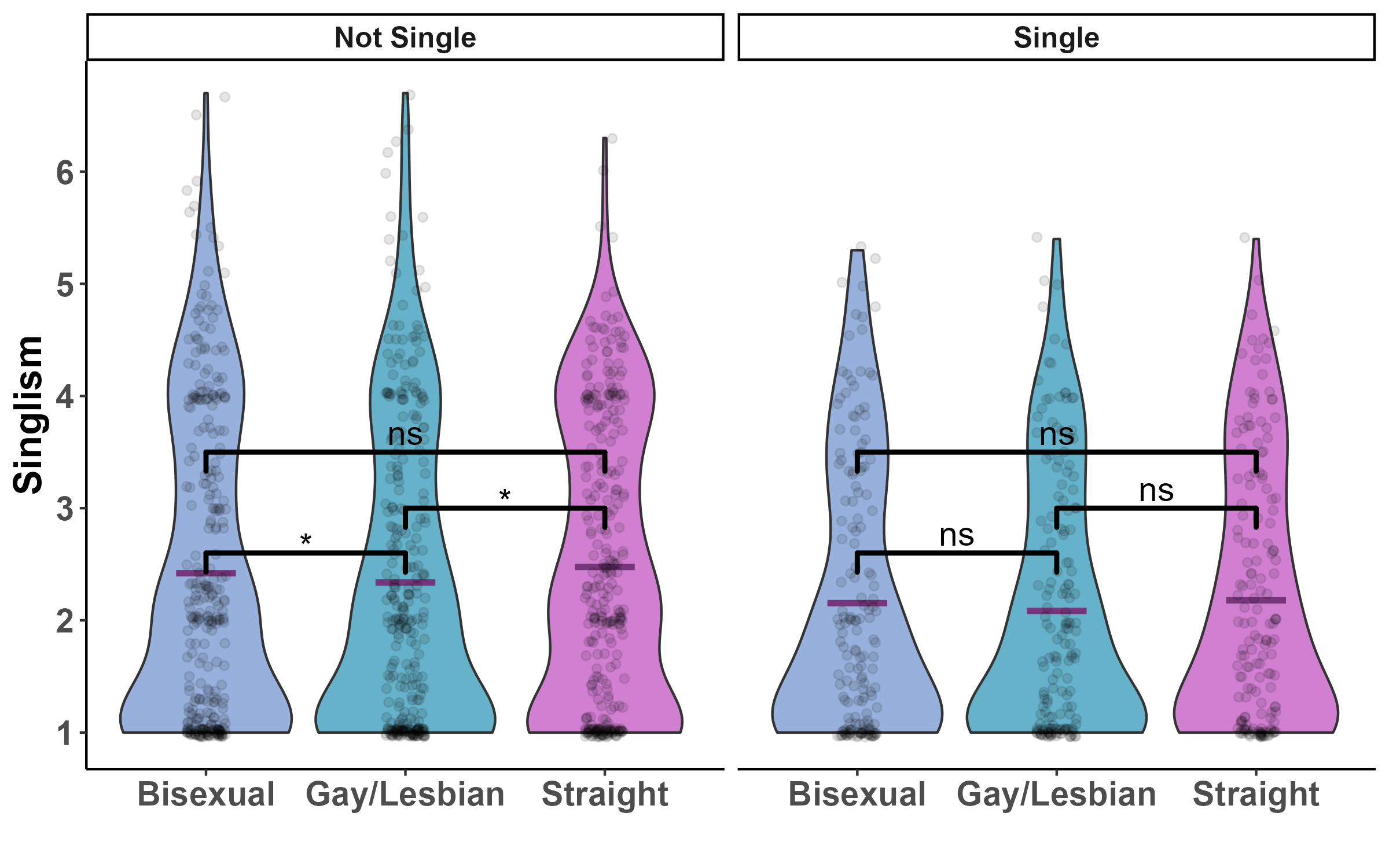
Publications
-
Li, K. C., van Berlekom, E., Atwood, S., & Wang, Y.-C. (2024). Towards inclusive and equitable LGBTIQ+ measurement: Assessing gender and sexual orientation measures and scale validity in national surveys across 21 countries. Journal of Social Issues, 1-27. https://doi.org/10.1111/josi.12635
-
Li, K. C., Cipollina, R., & Sanchez, D. T. (2023). Perceived COVID-induced racism and contextual predictors of fear and psychological distress among Black men. Social and Personality Psychology Compass, e12857. https://doi.org/10.1111/spc3.12857
Teaching
- Social Psychology Lab
- Experimental Research & Statistics
- Correlational Research & Statistics
- Intergroup Relations